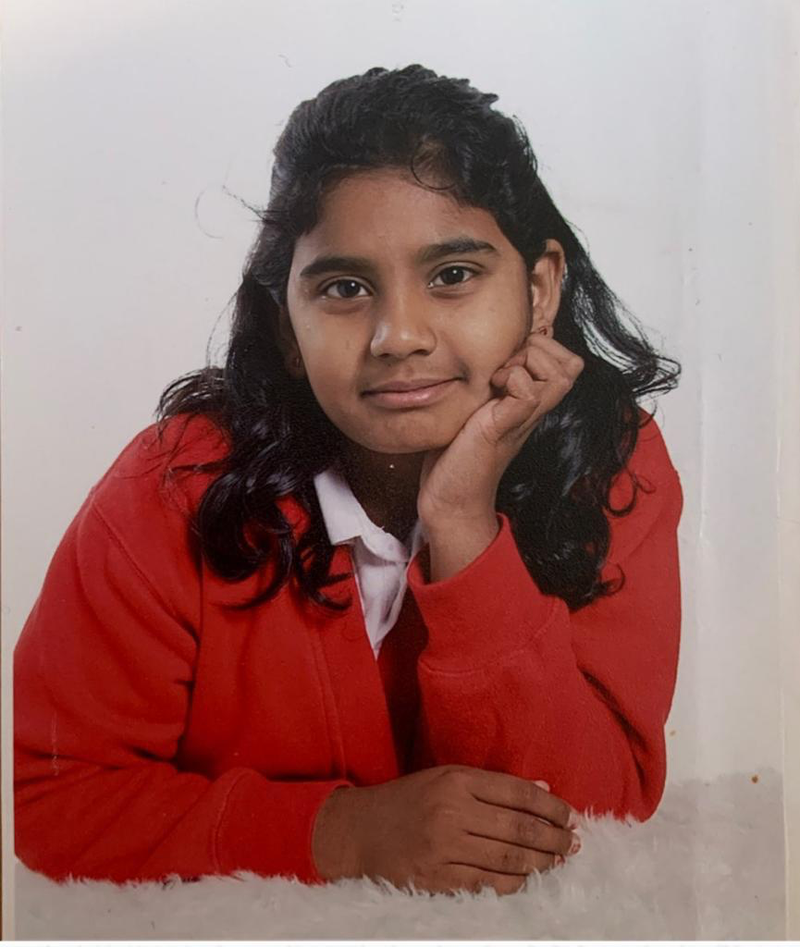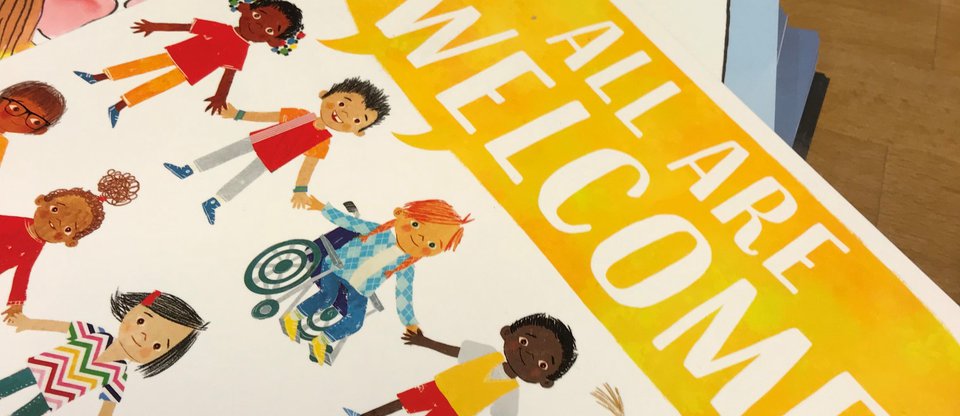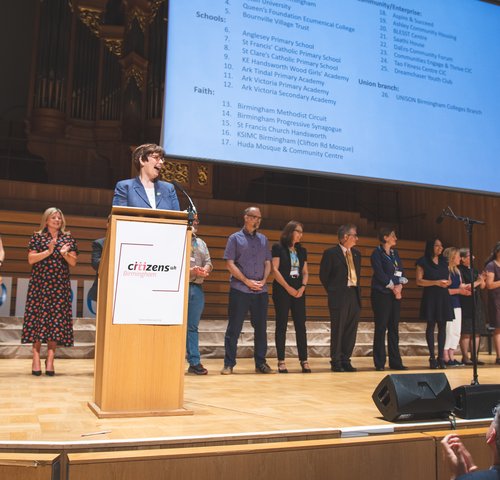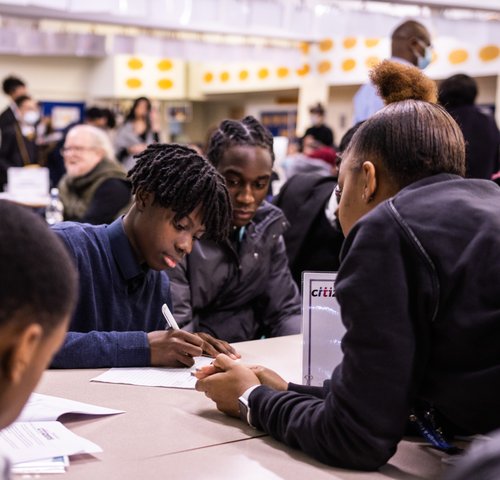DIVERSE BOOKS NEEDED FOR OUR CHILDREN - A GUEST BLOG
DIVERSE BOOKS NEEDED FOR OUR CHILDREN - A GUEST BLOG
Nottingham Citizens launched their #NCBetterBooks campaign on World Book Day. You can watch the powerful campaign video and donate HERE. In this guest blog, Manvi Mankhala, Geography student at the University of Nottingham, shares why she is leading on the campaign.

I came to this country from India when I was five years old. I went from living with my affluent grandparents to the U.K. to live with my working-class parents. In India, my family would often remark that I was well-behaved and talkative child. I went to a very good school in India where I was taught in English and I achieved very good marks. I expected that I would school in the U.K, very similar to my school in India. After all, I spoke only English at my Indian school and was able to keep up fairly easily with the rigorous Indian private school curriculum. What I didn’t understand at the age of six is that while I could speak English, that it was accented, which combined with the way I looked meant that for my first few years I had very few friends. In India, I had lots of friends, interacted with many people and was indeed as loud and talkative as I am today. My accent made me different, my word choices and my general approach to school made me different. Indian schools are very study orientated even from the beginning and I was used to this. Golden time was something that seemed crazy to me – school was for study.
So, I did what I thought I should do to fit in whilst also doing what I thought I needed to do. I read. Thinking back on it now, it was probably one of the best decisions I made. One of the first books I read in this country was ‘Who loves Mr Bear’ – a tale about a jealous bear I think. I can’t quite remember the details. I moved on quickly, reading more complicated books – reading everything from Roald Dahl to Michael Morpurgo to more eclectic choices with fantastical creatures and people.

"I understand that books allow imagination and for me books meant a new life, a way to assimilate and to be me"
I haven’t ever verbalised most of this before, I definitely haven’t written it down. It is weirdly personal because I think it explains me and why I am the way I am. I just know without books; I wouldn’t be who I am today. Books provided a refuge from bullying, from feeling different and they allowed me to become who I am now. The reasons for reading are varied but one thing is for certain, it is important. Reading needs to be representative, to show young people that they exist and co-exist and that they can be beautiful or brave or kind. They need to be able to see themselves in someone and that representation means that you can look somewhere and see a part of yourself, something that you can’t change.
I chose to read beyond the white centricity and books have played a significant role in my life, but I fear that books will be lost from the children that most need them, who won’t read them because the characters do not feel relatable. For relatability comes when you can see something and empathise – especially if it's something to feel conscious about. Looking back, I realise, reading helped normalise me. It was something me and my classmates had in common. We all had to read, and we would spend an hour each week dedicated to reading. And the more I read, the better my word choices got - the more normal I got. This meant that by year 6, when you heard me speak my accent was indistinguishable from that of my friends. That isn’t something to be proud of necessarily. I didn’t set out to change my accent, rather it was a by product of living in this country and reading. It helped me assimilate.
What I did notice though was that in every story I read, the main character was not like me. Always kind and beautiful with fair skin, often with blond hair – the polar opposite of me. I noticed this but it didn’t particularly bother me because I focused on the kindness – that to be like a character I had to be kind and generous. I could have very easily fell into setting standards of beauty unavailable to me at a very young age, especially coming from a culture that supports statements that fair skin is more beautiful. However, I was a smart stubborn child who focused on the ‘wrong’ thing or perhaps the right thing.
That is not the case for many young children. I have been carrying out research into this. I have read widely as a teenager and now as a university student. I still love books and I read now for pleasure to discover new worlds and new places. I understand that books allow imagination and for me books meant a new life, a way to assimilate and to be me.




